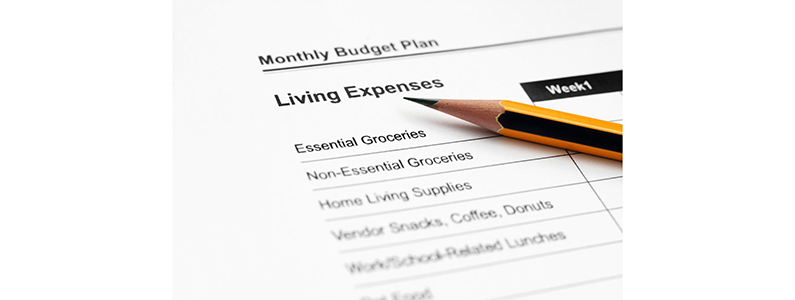There are two methods of budgeting: monthly budgeting and annual budgeting. Although both ways are possible, I favor annual budgeting, since it gives you a more accurate picture of your expenses. Here’s why:
Look at the big picture
When dealing with budgeting, it is important to have a picture of your general, overall expense situation. While monthly budgeting forces you to focus on short-term expenses, such as your monthly electricity bill, annual budgeting, on the other hand, forces you to focus on the overall picture of your cash flow.
The fear of a using a monthly budget is that it can lead to “tunnel vision” by looking at your expenses very narrowly. By focusing only on the current month, it’s easy to forget to include expenses that only occur once or twice during the year. People that set monthly budgets often exclude expenses that arise once or twice a year, such as a homeowner’s insurance policy, car insurance, yearly dental checkups, and more. Even though these annual or bi-annual expenses can be significant, they can easily be left out of a monthly budget where most of the focus is on recurring monthly bills. Therefore, if you have a long-term budget, these expenses won’t be forgotten.
Just like in chess, where it is important for the player to focus on the whole board, and see the overall direction in which he is heading rather than just focus on a certain square, it is important for a financial player to budget over the long term and see the overall picture of his expenses, and the long-term ramifications of spending. Once a chess player knows where all his pieces are placed, and grasps the overall diagram of the chessboard, he could start winning battles for specific squares. Similarly, once your annual budget is set, you can work backwards and break it down into smaller segments, which is your monthly budget.
Don’t be scared of the big picture
Many people are not confident they will estimate their annual budget correctly since it is a daunting thought to set out all of your annual expenses at the beginning of the year.
However, the fear of the project often causes increased attention and focus on detail. Annual budgeters tend to rise to the challenge, and when they plan out their yearly budget, they put more thought and effort into their annual budgeting assessment and carefully analyze the implications of where their money should go.
This extra careful analysis means that they are also usually more accurate in predicting their annual budget correctly. Similarly, the same study showed that people who were told that budgeting is a difficult task were more accurate in their predictions than people who were told budgeting is easy.
Careful planners put thought into their budget, and meticulously analyze the implications of where their money should go. By thinking about the situation carefully, they predict their own success. The more thought you put into creating your budget, the more accurate it will be.
Three points you should keep in mind when creating your annual budget
Always remember that although annual budgeting may not be easy, it is important to do it as accurately as possible in order to ensure that you will always have money when needed.
- Plan your expenses and divide them into –short-term, medium-term and long-term expenses
- Cut expenses if they don’t fit within your budget
- Save for your future goals, such as paying student loans. Otherwise, it will be hard to achieve them because you won’t have the necessary funds.
Keep your goals in mind and your money in your pocket. If you budget correctly, you will have the money when you need it!
For more tips and information about budgeting, click here.




